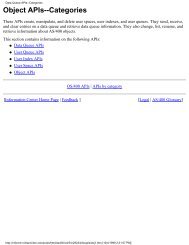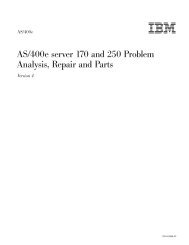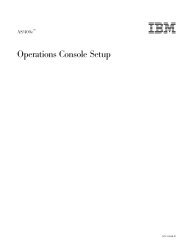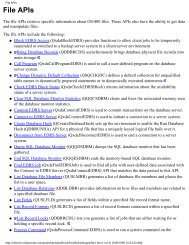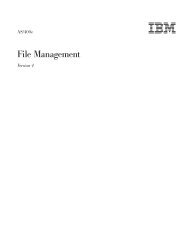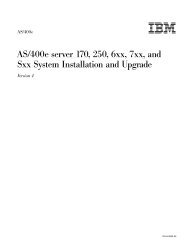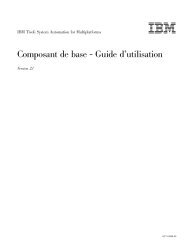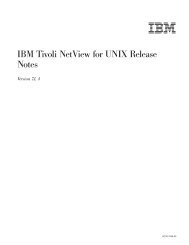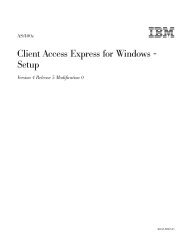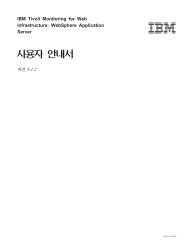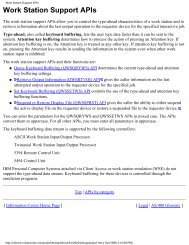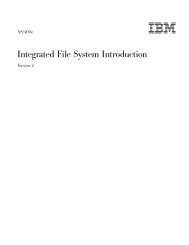Qshell Interpreter (qsh) - FTP Directory Listing - IBM
Qshell Interpreter (qsh) - FTP Directory Listing - IBM
Qshell Interpreter (qsh) - FTP Directory Listing - IBM
Create successful ePaper yourself
Turn your PDF publications into a flip-book with our unique Google optimized e-Paper software.
export - Set export attribute for variables<br />
Synopsis<br />
Description<br />
Options<br />
Operands<br />
Exit status<br />
Related information<br />
Examples<br />
export [ -ps ][ name [ =value ] ] ...<br />
You can use exportto set the export attribute for the variable(s) specified by name.<br />
A variable with the export attribute is automatically placed in the environment of<br />
subsequently executed commands.<br />
When no arguments are specified, <strong>qsh</strong> displays a list of all the variables with the<br />
export attribute and their values.<br />
v -p Precede each line of the output with the word “export ” so it is displayed in a<br />
re-enterable format.<br />
v -s Also set the variable as an environment variable in the current process.<br />
Each name specifies a variable in the current environment. If a value is also<br />
specified, the value of the variable is updated.<br />
v 0 when successful.<br />
v “readonly - Set read-only attribute for variables”<br />
v “set - Set or unset options and positional parameters”<br />
v “unset - Unset values of variables and functions”<br />
1. Set the export attribute for an existing variable: export ALPHA<br />
2. Set the value and export attribute of a new variable: export ALPHA=one<br />
3. List all variables with the export attribute: export<br />
[ Legal | AS/400 Glossary ]<br />
local - Assign a local variable in a function<br />
Synopsis<br />
local [ name [ =value ] ] ...<br />
Chapter 4. Utilities 93



